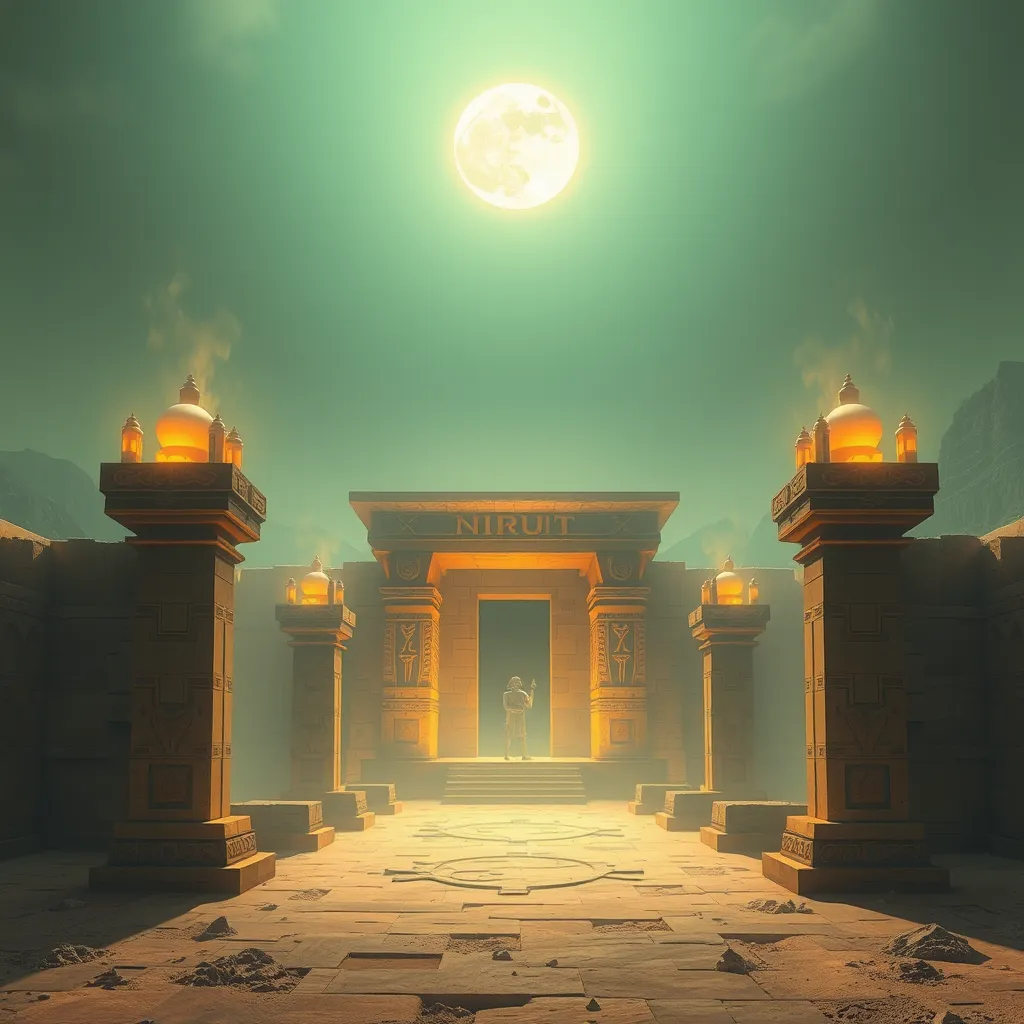The Duat: Where the Souls of the Dead Find Peace
I. Introduction
The concept of the Duat is central to ancient Egyptian belief, representing the realm of the dead and the journey that souls undertake after death. In this mystical underworld, the deceased navigate various trials and tribulations, seeking to attain a state of peace and eternal rest. The Duat is not merely a place of darkness and despair; it is a complex landscape filled with both challenges and opportunities for spiritual growth.
This article aims to explore the rich history, structure, and significance of the Duat in ancient Egyptian culture, as well as its lasting impact on modern interpretations of the afterlife.
II. Historical Context of the Duat
The origins of the Duat can be traced back to the early stages of ancient Egyptian religion, where it was first depicted in the Pyramid Texts around 2400 BCE. These texts provided insights into the beliefs surrounding the afterlife and the necessary rites for ensuring a safe passage for the deceased.
Over time, the understanding of the Duat evolved, influenced by changes in religious practices and societal beliefs. By the New Kingdom period, the Duat was richly described in various funerary texts, such as the Book of the Dead, which served as a guide for the deceased navigating this complex realm.
Key artifacts, including tomb paintings and sarcophagi, depict the Duat’s landscapes and the souls’ journeys, highlighting the significance of this otherworldly realm within the broader context of ancient Egyptian spirituality.
III. The Structure of the Duat
The Duat is often described as a vast, intricate realm consisting of various regions and landscapes. These include:
- The Fields of Aaru: A paradise where righteous souls enjoy eternal bliss.
- The Hall of Two Truths: The location where the Weighing of the Heart ceremony takes place.
- The Lake of Fire: A place of punishment for the wicked.
Each of these realms serves a specific purpose in the journey of the soul. The landscapes of the Duat are imbued with symbolism, representing both the challenges faced in life and the promise of rebirth and renewal.
Deities play a crucial role within the Duat, guiding and protecting souls as they navigate this complex underworld. Notable deities include:
- Osiris: The god of the afterlife and resurrection, ruling over the Duat.
- Anubis: The god of mummification and the protector of graves, overseeing the souls’ journey.
- Ma’at: The goddess of truth and justice, whose principles govern the Weighing of the Heart ceremony.
IV. The Journey Through the Duat
Upon death, the soul embarks on a perilous journey through the Duat, which is fraught with obstacles and challenges. This journey represents the soul’s struggle for acceptance and peace in the afterlife.
Throughout this journey, the deceased faces various trials, including:
- Encounters with hostile entities and demons.
- Overcoming illusions and temptations that distract from their purpose.
- Seeking guidance from benevolent deities.
A pivotal moment in this journey is the Weighing of the Heart ceremony, where the deceased’s heart is weighed against the feather of Ma’at. This ceremony determines whether the soul is deemed worthy of entering the Fields of Aaru or condemned to face eternal punishment.
V. The Role of Deities in the Duat
Deities are integral to the structure and function of the Duat, providing guidance and support to the souls. Each deity has specific roles that facilitate the deceased’s journey:
- Osiris: As the ruler of the Duat, Osiris welcomes the souls and offers them the promise of resurrection.
- Anubis: Anubis ensures the proper mummification and safeguarding of the deceased, guiding them through the underworld.
- Thoth: The god of wisdom who records the outcomes of the Weighing of the Heart.
To appease these deities, the living performed rituals and offered sacrifices, believing that such actions would secure a favorable judgment for their loved ones in the afterlife.
VI. The Duat and the Concept of Peace
The Duat is often viewed as a sanctuary for the deceased, offering rest and reflection after the trials of life. It embodies the notion of eternal peace, where souls find solace and transcendence beyond the physical realm.
The concept of judgment is pivotal in this pursuit of peace. The righteous are rewarded with eternal life in the Fields of Aaru, while those deemed unworthy face the consequences of their actions. This duality reflects a broader philosophical understanding of morality and justice within ancient Egyptian culture.
When compared to other cultural views of the afterlife, the Duat stands out for its emphasis on judgment and the potential for rebirth. Many cultures depict the afterlife as a static state, whereas the Duat offers a dynamic journey toward spiritual fulfillment.
VII. Modern Interpretations and Cultural Legacy
The concept of the Duat continues to resonate in modern spirituality, influencing various beliefs about the afterlife and the soul’s journey. Contemporary interpretations often draw upon the rich symbolism and mythologies of ancient Egypt.
The Duat has also been represented in literature and media, inspiring works that explore themes of death, resurrection, and the afterlife. From novels to films, the enduring fascination with this ancient belief system reflects humanity’s ongoing quest to understand the mysteries of existence.
Furthermore, modern interest in ancient Egyptian cosmology has led to a resurgence in the exploration of esoteric philosophies, with many seeking to reconnect with the spiritual insights of the ancient world.
VIII. Conclusion
The Duat holds significant importance in ancient Egyptian belief, offering a comprehensive understanding of the afterlife and the soul’s journey toward peace. It encapsulates the hope for resurrection and the promise of eternal rest, emphasizing the moral responsibilities of life.
This enduring fascination with the Duat serves as a reminder of our shared human experience regarding death and the afterlife. As we reflect on the meaning of peace in this context, we are invited to consider our own beliefs and values surrounding mortality and the journey beyond.




